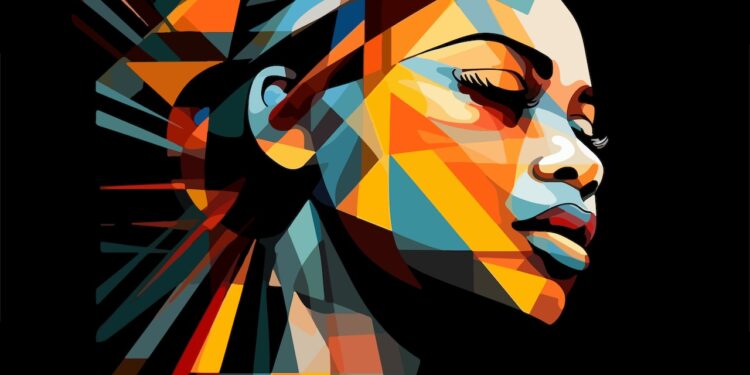
“Disgrace is the intensely painful feeling or expertise of believing that we’re flawed and due to this fact unworthy of affection, belonging, and connection.” ~Brené Brown, Atlas of the Coronary heart
This previous 12 months, I began the journey of investigating—perhaps even befriending—“my” disgrace.
I take advantage of quotes across the “my” as a result of a lot of the disgrace isn’t mine; a lot of it’s internalized sexism, racisim, anti-blackness and homophobia, and/or intergenerational—it was handed right down to me. And whereas I didn’t select to internalize or inherit it, it’s my duty to take care of “my” disgrace, to tenderize it with love and compassion so it could be transmuted. I get to alchemize and develop flowers rooted throughout the wealthy compost of my therapeutic journey, fertilized by ancestral presents.
Disgrace is without doubt one of the most uncomfortable experiences, a lot in order that we frequently challenge our disgrace onto others to offer some aid from the discomfort. I discovered this on the Aware Self-Compassion (MSC) trainer coaching intensive I had the privilege to attend within the fall.
Through the MSC coaching, I acquired the blessing of the dharma of disgrace and discovered about its antidote—aware self-compassion. 5 clever practitioners, together with Chris Germer, one of many co-founders of the eight-week MSC program, guided about thirty people (from throughout the US, together with some of us from abroad) to expertise the facility of self-compassion by means of a week-long workshop.
Chris shared a knowledge gem I’ll always remember: disgrace is rooted in our common want and want to be cherished. The innocence of disgrace touched one thing deep in me; it felt like permission, or an invitation, to see the exiled components of myself battling disgrace.
I had by no means actually talked about disgrace earlier than coaching to supply aware self-compassion. It felt like if I talked concerning the disgrace, if I named it, you’d see the skinny movie of disgrace that I felt coated my physique for a lot of my childhood into younger maturity. It felt like if I named it, you’d know I used to be undeserving of the love I felt determined for.
There was disgrace round being a lady, then a girl; there was disgrace round being expansive in my sexual orientation and gender expression; there was disgrace in being a survivor of home and sexual violence; there was disgrace round socioeconomic standing… the record goes on.
Aware self-compassion has helped me look past the sufferer mentality I used to strongly determine with. I see that, like all of us, I’ve been formed by early experiences with caregivers and by the environments I’ve grown in. I see that, like most of us, I’ve all the time accomplished the very best I may with the instruments accessible to me on the time. And in my expertise, I’ve leaned on—and clung to—many maladaptive instruments like utilizing substances to flee.
Right this moment, I’m grateful to know the disgrace comes from an harmless place and that it may be transmuted into compassion for myself and for all beings in all places.
I don’t keep in mind the place I first discovered this, however Brené Brown additionally talks about disgrace’s roots within the common want for belonging. Once we really feel we’re separate from the remainder of the world, once we really feel we don’t belong, there’s a particular type of ache and struggling that emerges.
In my expertise, feeling like I didn’t belong, feeling separate, created deep wounds of unworthiness and otherness. Brené goes on to speak about “becoming in” being the alternative of belonging. And in my determined makes an attempt to belong and be cherished, I leaned into the facade of “becoming in,” and the wounding deepened.
In writing about my lived expertise—releasing what’s been floating round for years in my mind-body house—I’m reminded of Brené Brown’s Atlas of the Coronary heart.
She defines disgrace as “the intensely painful feeling or expertise of believing that we’re flawed and due to this fact unworthy of affection, belonging, and connection.”
She gives “disgrace 1-2-3s”: (1) All of us have it. Disgrace is common and one of the crucial primitive feelings that we expertise. The one individuals who don’t expertise it are those that lack the capability for empathy and human connection. (2) We’re all afraid to speak about it. Typically we are able to really feel disgrace once we simply say the phrase “disgrace.” However it’s getting simpler as extra individuals are speaking about it. And (3) The much less we discuss it, the extra management it has over us. Disgrace hates being spoken.
So, right here is my first writing—seemingly one in all many—on disgrace, as I proceed this sacred journey of turning into a aware self-compassion trainer and providing one of many mindfulness-based applications for psychological well being that’s been most impactful for me.
I’ll shut with another share, supplied by an attractive mentor, one of many facilitators of the trainer coaching intensive: “Nobody right here must be fastened.”
As he shared this on the opening to the week-long intensive, I felt my physique soften and exhale. It was acquired as a love be aware to little river exiles: I’m not dangerous, I’m not unworthy, I don’t want fixing. Like all of us, I deserve love, belonging, and connection. All of us do; it doesn’t matter what has occurred prior to now, it doesn’t matter what the long run holds. Proper right here, proper now, we deserve and are worthy of affection, belonging, and connection.
Might we really feel love, belonging, and connection. Might we all know we’re cherished, we belong, and we’re interconnected. Might we help one another on the journey of self-liberation.








Discussion about this post